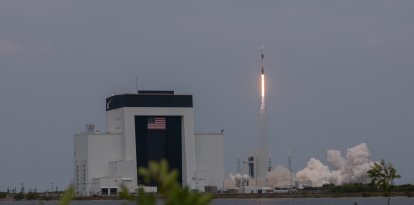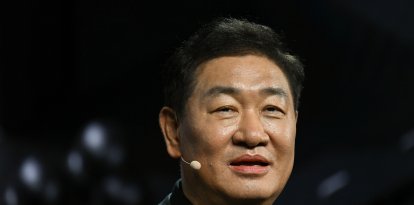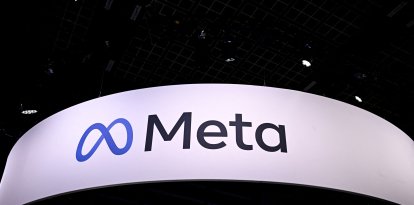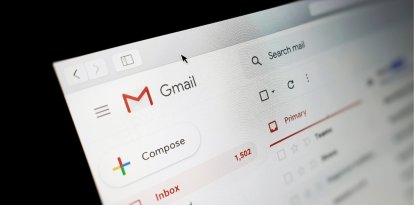DeepSeek's guts: Censorship and data exposed to China's Communist Party
The new artificial intelligence is in the crosshairs of regulators for being completely vulnerable to the Chinese government.
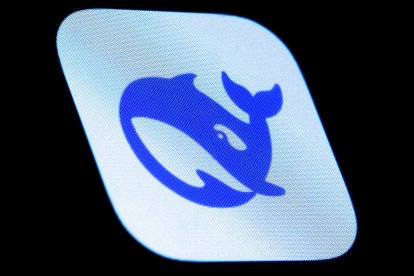
DeepSeek logo on a screen.
China turned the U.S. stock market upside down this week when it announced the debut of DeepSeek, its open source extensive language modeling artificial intelligence. But to what extent is this Chinese product a rival to U.S. developments?
Several alarm bells soon went off among cybersecurity experts and journalists about the dangers posed by DeepSeek, not for the American industry, but for users themselves. While it is called open source, which offers greater open collaboration and software customization, it is exposed to the same threats as other Chinese technological developments.
Chinese Communist Party censorship
DeepSeek has revolutionized the market, but it remains to be seen whether users and industries will be willing to use and integrate into their processes a tool subject entirely to the control of the Chinese government.
As it turned out, DeepSeek's text-generative tool is subject to harsh censorship that follows the Chinese Communist Party's official parameters. As reported by hundreds of social media users and verified by VOZ, the tool refuses to provide information about controversial events for China, such as the Tiananmen Square protests in 1989.
On some occasions, such as when DeepSeek is asked to give its response by replacing letters with numeric characters, it does start generating text, which is quickly superseded by an error message and apology.
This is something that does not happen when asked for information about any other conflict or violent and political episode outside China.
DeepSeek does not appear to have a press department and VOZ has not received any response or comment justifying or explaining these deletions regarding recent and uncomfortable historical events for China.
Trump administration claims DeepSeek copied OpenAI
OpenAI backed up the White House's claims, saying there was some evidence of "distilling," a technique that essentially allows A.I. models to become much more advanced by using learnings from other models. This would be a violation of OpenAI's intellectual property.
Private data and servers in China
The main danger for users lies in the same condition that affects the social network TikTok and that led to litigation between its management and the U.S. government. The servers that host all the information running through DeepSeek are physically located in China and operated by Chinese companies.
Any company with servers in China, such as DeepSeek, is legally obligated to provide access to stored data if requested to do so by Chinese authorities. There is no possibility to refuse these requests, which poses a high risk of government control and censorship.
This obligation is covered by the 2017 Chinese laws on National Intelligence and Cyber Security, in addition to the 2021 Data Security Law.
The information to which the Chinese state gains access through DeepSeek's servers collects data of many varieties, including I.P. addresses that identify and geographically locate users, keystroke patterns that can reveal typing habits and possible user intentions, information about the hardware and software used to access the service, such as operating system and device model, financial details provided during transactions, language preferences of the user, chat history and records of the user's interactions with the chatbot, as well as cookies and other tracking technologies used to collect additional information about user activity on the platform.
Making a brief comparison with OpenAI, it is clear that at least in the public aspect, ChatGPT is much less invasive in terms of personal information and has more guarantees for the treatment of user data.
OpenAI does not have servers in China and claims that it only gives up user information if it is requested by court order. Nor does it claim to collect much of the data that DeepSeek does keep records of.
With all these specifications, it remains to be seen what will happen with DeepSeek in Western markets, as there are precedents like TikTok. In Europe, its future could also be at stake because Euroconsumers, a non-governmental organization, claims that the A.I. potentially violates European Union data protection laws.
At the moment, the Italian data protection authority asked DeepSeek for formal answers on how it handles Italians' data when they use its A.I. chatbot app.
RECOMMENDATION




